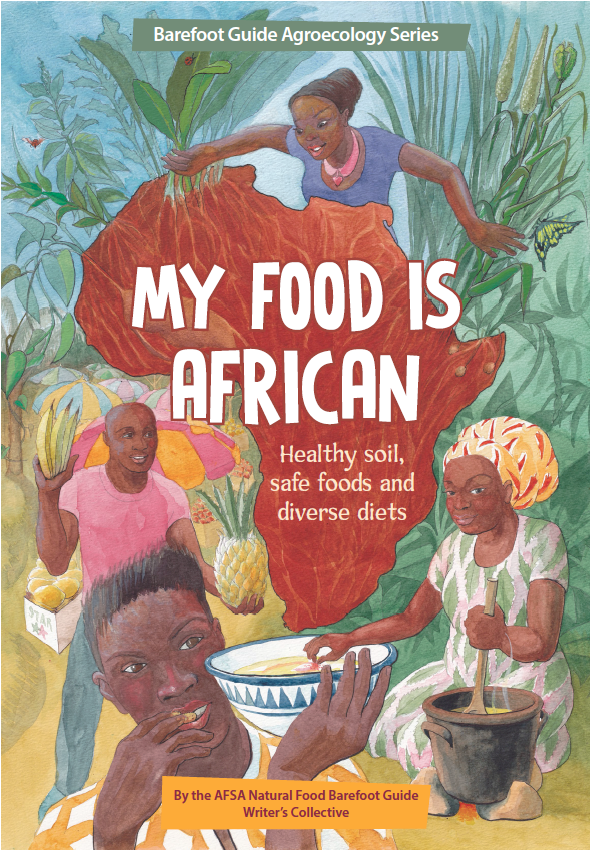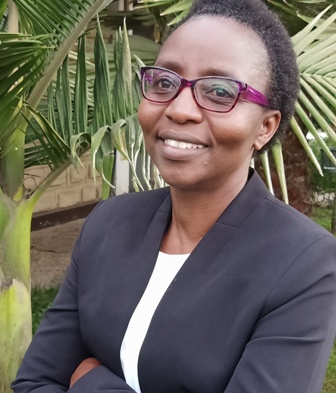The AFSA online sessions use stories from:
AFSA (2022) My Food is African #p.150
This book is a stimulant to discussion around moving towards healthy eating for all, based on traditional and local foods, diets and cuisines.
- What’s holding it back? Why?
- What can be done about it?
- How to turn the tide that’s increasingly seeing highly processed foods coming into our diets?
- How to value the richness of our traditional foods and diets?
- How to enable more people to have access to this? And so on.
This second session focused around the theme of food shaming: based on the story @ page 17: Being laughed at because you eat traditional food.
Food shaming was a common trend at my boarding school. Those found with traditional foods were considered old-fashioned by those coming from urban areas. One of the girls even refused to meet her mum simply because she had brought her some traditional foods.
AFSA’s My Food is African book
This book explains why our African diet has so many health benefits. It contains examples of practice, culture, health, and science. It honors our food cultures while also warning us about the dangers of chemicals and misguided approaches such as biofortification.“As a Public Health Physician turned Sustainable Development Practitioner and passionate advocate of preventive interventions, I strongly recommend reading and using this book as an awareness creation tool resulting in dietary behavior changes. Coming at a time when the current conventional food system is broken and has failed by producing toxic food, this book fills a gap, it provides a much-needed alternative healthy diets solution to food insecurity, rising chronic disease burden, and the climate crisis, by providing an Afrocentric roadmap to safe and healthy diets and a healthy ecosystem” Dr. Peter Ogera Mokaya, Executive Director of Organic Consumers Alliance (OCA) and a Public Health and Development Practitioner from Kenya
“African solutions are required to address the continent’s problems of food insecurity, malnutrition, and poverty. We have the solutions in our hands. Africa’s crops are resilient, contain a variety of nutrients, and are the solution to our problems. Africa should wake up and start celebrating the rich diversity in our cultures, languages, fashion, and food. We cannot afford to rely solely on a few food crops. This is more than just boring to eat; it significantly lowers the quality of the diet and renders farming systems unsustainable and extremely vulnerable, particularly during extreme weather conditions.” Prof. Cecilia Moraa Onyango, Senior Lecturer at the University of Nairobi’s Department of Plant Science and Crop Protection, KenyaThis Barefoot Guide is free to download and offered with love and care for every person, every family, and every community in Africa (and beyond).



No comments:
Post a Comment